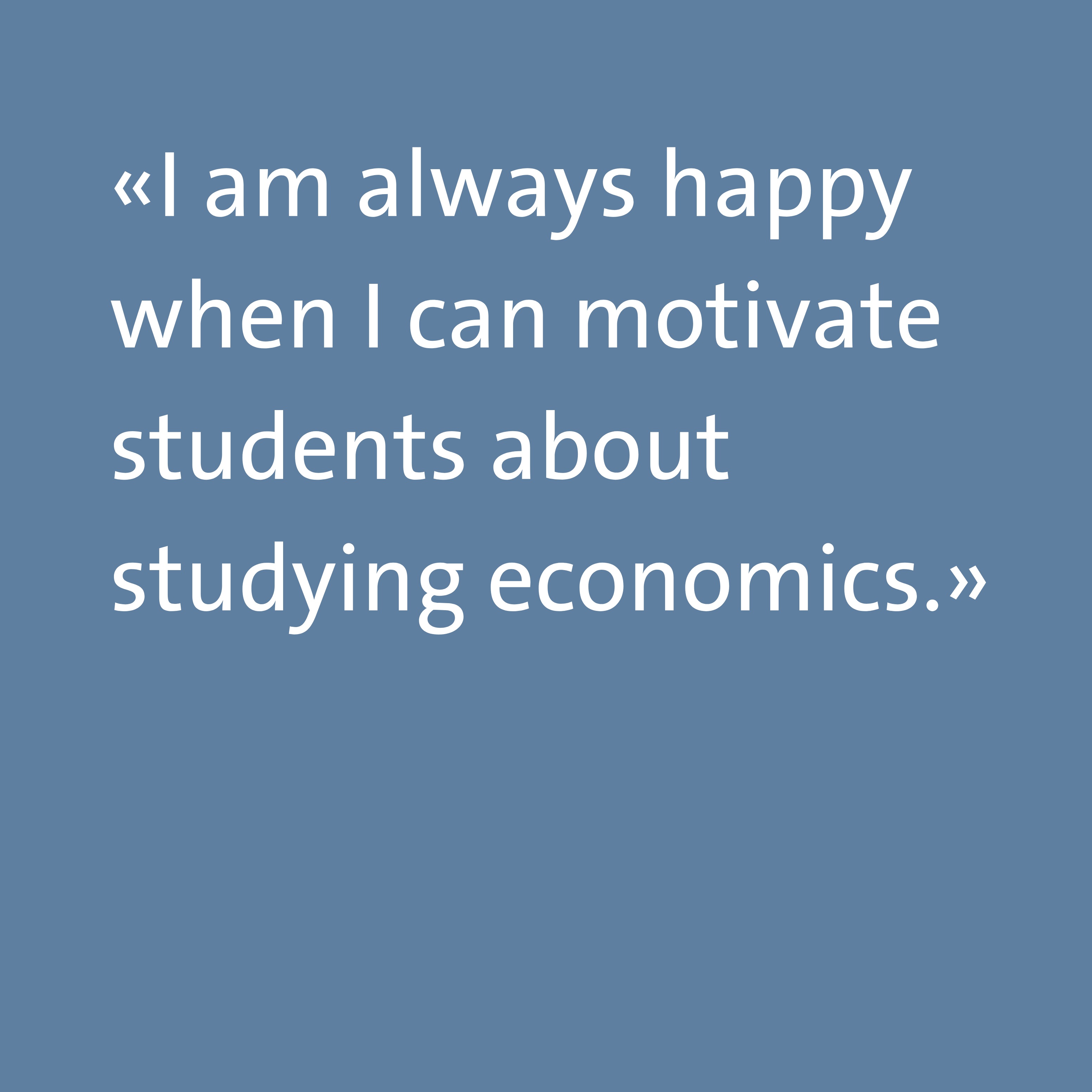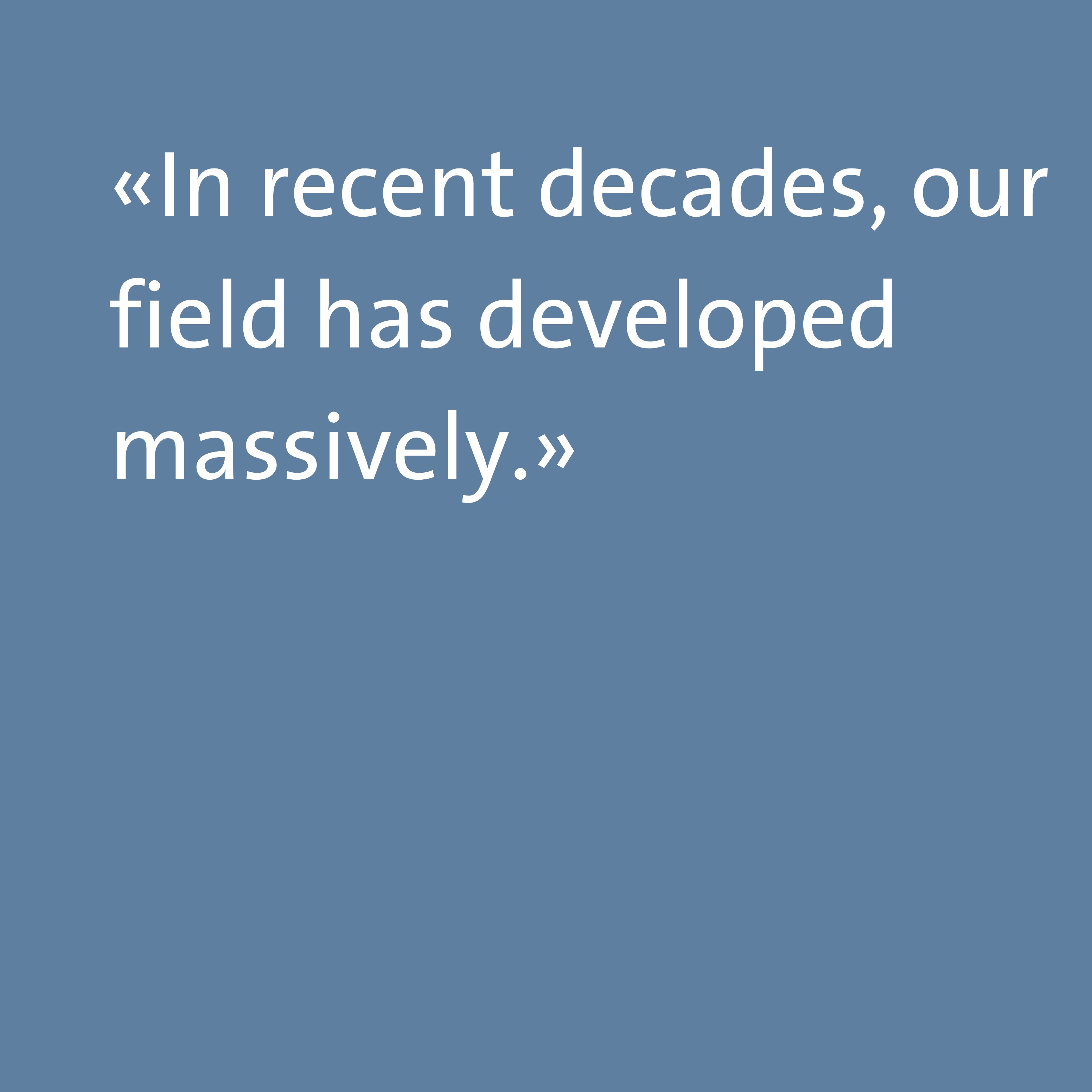In Conversation with Dina Pomeranz
Dina Pomeranz was recently promoted as the UBS Foundation Associate Professor of Applied Microeconomics. We spoke with her and looked back on her academic journey.


What motivates you in your work as a professor?
Pomeranz: I became a researcher because I wanted to better understand why the world is so unequal and what we can do about it. I am inspired by how much modern economic research can contribute to these questions. Prior to my PhD, I was torn between whether I subsequently wanted to work in research or rather in policy. But then I realized that it is possible to combine both. I therefore particularly value the close research collaborations with my partners from practice. In my research projects, I work for example with governments, tax authorities, or development organizations in Chile, Ecuador, Kenya, Tanzania, or the Democratic Republic of Congo. Through these collaborations I have learned a lot. Together with these partners, we develop research questions that are both scientifically sound and practically relevant.
What does teaching mean to you?
Pomeranz: Teaching is a central aspect of our work, in which we share insights from research with our students. I enjoy this opportunity to be in contact with so many young, highly motivated people. During my own studies of international relations in Geneva, I personally experienced how much impact that dedicated and passionate professors can have. Richard Baldwin showed us how important economic considerations can be for understanding societal issues. Marcelo Kohen taught us the relevance and applications of international law – an education that continues to be helpful to this day in analyzing geopolitical developments. And Najy Benhassine inspired several of us to pursue a PhD in development economics – i.e. in the economics of on low- and middle-income countries. Without these mentors, I would not be where I am today.
That’s why I love it when I can get students excited for the study of economics and when I can support them in their goals of making a positive contribution to our world and society. Our students inspire me!

Which aspects of economic research have particularly surprised you?
Pomeranz: As I mentioned, I originally did not study economics, but international relations. I previously thought that studying economics was for people who wanted to earn as much money as possible. Honestly, I didn’t even know the difference between the study of business administration and economics. In German, the names of these two fields are very similar (“Betriebswirtschaft” vs “Volkswirtschaft”). I didn’t realize that economics is a social science that studies the behavior of people, organizations, and markets.
The more I learned about current economic research, the more excited I became. In recent decades, our field has developed a lot. Among other things, thanks to the availability of increasingly better data and methods, we can study complex issues in a more reliable way and therefore base decisions more on empirical evidence and less on ideology.
In my research, I explore questions such as the impact of development projects, combating tax evasion, incentives for saving, corruption in public procurement, global poverty reduction, and access to green technologies. I would have never imagined that all these are topics to which economics can make a valuable contribution.
Do you sometimes come across surprising findings in your research?
Yes, many times! One example was a project with the Chilean tax authority. After Chile joined the OECD, the country implemented a tax reform in 2011 to combat tax avoidance by large corporations. These companies often have subsidiaries in several countries and can therefore shift profits to low-tax countries, even if these profits were not actually generated there (so-called “profit shifting”).
The expectation was that the reform would significantly reduce tax-motivated profit shifting and thus generate new tax revenue for the country. However, to the surprise of both of researchers and the partners in tax authority, the data showed that the reform did not reduce profit shifting. At first, we couldn’t understand this. To gain more clarity, we conducted many in-depth qualitative interviews with experts from the affected companies, the tax authority, and tax consulting firms. From these conversations, we learned the following: as a result of the reform, many multinational companies increasingly consulted specialized tax advisors who helped them further optimize their international taxes instead of paying more taxes in Chile. We were then able to quantitatively confirm these insights from the interviews with tax and labor market data. We found that the number of tax advisors for this topic increased tenfold within just a few years!

What did you take away from this experience?
Pomeranz: This research project confirmed three fundamental things for me:
First, causal quantitative impact measurement is very helpful to reliably determine the consequences of policy decisions, especially where one might intuitively expect a different effect. Second, in addition to the data, personal conversations and local expertise are key. Without the interviews with local experts, we would probably not have discovered the role of the consulting industry in this context. And third: research can sometimes be as exciting as detective work!
This year you were appointed to a permanent professorship. Congratulations on this milestone! Where do you see your next steps?
Pomeranz: I will continue to focus primarily on my academic research and teaching. There is still so much to discover for research! Regarding teaching, I look forward to contributing to the expansion of our course offerings at the bachelor’s and master’s level. In particular, for those students who, like I did originally, study economics as a minor.
Since receiving the news that I would be getting a permanent professorship at the University of Zurich, I also decided to increasingly communicate insights from research outside the university. As a professor at a public Swiss university, I also see this to some extent as our responsibility. One form this can take is to communicate more about economic research for example, in the media, at the university for seniors, and at public events. At the same time, I am increasingly being asked by public and private institutions for my expertise, be it in advisory commissions of the Federal Council, in Parliament, or for impact assessments of organizations.
Overall, I am extremely grateful to be able to work in this wonderful economics department at the University of Zurich. So much still to learn!
The interview was conducted by Solenn Le Goff.